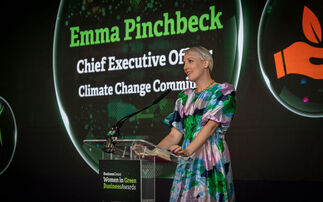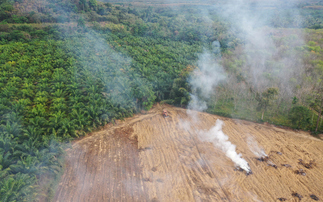Mexico's climate targets for a Paris deal appear to be some of the most ambitious in the world, says PwC's Jonathan Grant
Since it successfully managed the post-Copenhagen salvage operation at COP16, Mexico has made great strides in implementing climate policy. It has had less success in reducing its carbon intensity. So the emissions target Mexico proposed earlier this year appears really ambitious and implies a significant shift in policy and regulation.
The carbon intensity of the Mexican economy has remained stubbornly flat this century. Consequently, emissions have risen in lockstep with economic growth. This will have to change if Mexico is to achieve the ambitious target it submitted to the UN in March. Given rising emissions, Mexico has set its target against a business as usual baseline rather than a base year. Emissions are expected to peak in the mid-2020s giving Mexico little time to implement a low carbon transition.
Mexico will reduce GHG emissions by 22 per cent compared to its 2030 business as usual emissions. It is roughly equivalent to an absolute reduction of six per cent on 2005 levels. It also made a conditional offer to raise this to 36 per cent if there is a global agreement on matters such as an international carbon price1.
We used our Low Carbon Economy Index model to assess whether Mexico's target is ambitious compared with a business as usual scenario and other national emissions targets. We compare Mexico's ambition with our model's business as usual baseline. This extrapolates Mexico's historic decarbonisation trend, rather than the BAU stated in their INDC2. The approach is consistent with our analyses of other national targets.
Against our model, Mexico's 22 per cent reduction by 2030 looks really ambitious. It would need to shift from slightly rising intensity, to decarbonising at a rate of 4.8 per cent per year. This is a significant change from Mexico's current trend and results in a carbon intensity comparable to the EU's. It implies a step change in climate policy and regulation in the short term which has obvious implications for business.
This target looks even more ambitious if you consider that Mexico expects its emissions to continue rising until the mid-2020s. Our 4.8 per cent reduction pathway assumes an immediate and constant decline in emissions linked to energy. The actual reductions are likely to be shallower in the run up to 2025 with a sharp decline needed in the final five years of the target period.
It is understandable that, with rising emissions, Mexico compares its reduction target against a business as usual scenario (rather than an historical base year), as their target will appear more ambitious. Other emerging economies may use a similar approach. However, it is harder to analyse and compare with other national targets and can be less transparent than using absolute emissions numbers.
Mexico's conditional target is more ambitious still and consistent with its existing long-term goal of reducing emissions by 50 per cent by 2050 against a fixed base year of 2000. To achieve these targets, carbon intensity would need to fall by approximately six per cent a year from 2016. This is the level of reduction in carbon intensity required globally to limit warming to 2°C (see PwC's Low Carbon Economy Index).

1The INDC also contains targets to reduce ‘black carbon' which increases the unconditional and conditional targets to 25 per cent and 40 per cent respectively. However, we exclude this element here to be comparable with analysis of other countries.
2Our carbon intensity figures do not match those stated in Mexico's INDC because they are based on PwC's GDP growth projections which differ from those made by the Mexican government.
Jonathan Grant is director of sustainability and climate change
This article is part of BusinessGreen's Road to Paris hub, hosted in association with PwC.








